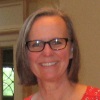About the MOOC Interview Panel
This interview draws together the experiences of six different writing scholars as they each have participated in different aspects of creating and delivering MOOC instruction.
 Denise Comer is an Assistant Professor of the Practice of Writing Studies and Director of First-Year Writing at Duke University. She teaches theme-based first-year writing seminars on such areas as social media, illness narratives, civic engagement, and travel writing. In 2012 Denise earned a grant from the Bill & Melinda Gates Foundation to develop a writing-based MOOC: offered in partnership between Duke University and Coursera, English Composition I, became the first-ever composition MOOC. Currently in its third iteration, it has enrolled over 210,000 people from around the world. Her scholarship, which explores writing pedagogy, writing program administration, and the intersections between technology and the teaching of writing, has also appeared in such journals as Pedagogy, Writing Program Administrators Journal, Composition Forum, and Writing across the Curriculum.
Denise Comer is an Assistant Professor of the Practice of Writing Studies and Director of First-Year Writing at Duke University. She teaches theme-based first-year writing seminars on such areas as social media, illness narratives, civic engagement, and travel writing. In 2012 Denise earned a grant from the Bill & Melinda Gates Foundation to develop a writing-based MOOC: offered in partnership between Duke University and Coursera, English Composition I, became the first-ever composition MOOC. Currently in its third iteration, it has enrolled over 210,000 people from around the world. Her scholarship, which explores writing pedagogy, writing program administration, and the intersections between technology and the teaching of writing, has also appeared in such journals as Pedagogy, Writing Program Administrators Journal, Composition Forum, and Writing across the Curriculum.
 Jeff Grabill is Professor of Rhetoric and Professional Writing and Chair of the Department of Writing, Rhetoric, and American Cultures at Michigan State University. He is a senior researcher with the Writing in Digital Environments (WIDE) Research Center. He is also a co-founder of Drawbridge, an educational technology company. As a researcher, Jeff studies how digital writing is associated with citizenship and learning. He has published two books on community literacy and articles in journals like College Composition and Communication, Technical Communication Quarterly, Computers and Composition, and English Education.
Jeff Grabill is Professor of Rhetoric and Professional Writing and Chair of the Department of Writing, Rhetoric, and American Cultures at Michigan State University. He is a senior researcher with the Writing in Digital Environments (WIDE) Research Center. He is also a co-founder of Drawbridge, an educational technology company. As a researcher, Jeff studies how digital writing is associated with citizenship and learning. He has published two books on community literacy and articles in journals like College Composition and Communication, Technical Communication Quarterly, Computers and Composition, and English Education.
 Bill Hart-Davidson is Associate Dean for Graduate Education in the College of Arts & Letters and Associate Professor in the Department of Writing, Rhetoric, & American Cultures at Michigan State University. Bill teaches in the Professional Writing and Experience Architecture undergraduate programs and in the Rhetoric & Writing graduate program. Bill is co-inventor of Eli Review, a software service that supports peer learning, and is a co-founder of Drawbridge, Inc., a spinoff of the Writing in Digital Environments (WIDE) Research Center. Bill is a Senior Researcher at WIDE.
Bill Hart-Davidson is Associate Dean for Graduate Education in the College of Arts & Letters and Associate Professor in the Department of Writing, Rhetoric, & American Cultures at Michigan State University. Bill teaches in the Professional Writing and Experience Architecture undergraduate programs and in the Rhetoric & Writing graduate program. Bill is co-inventor of Eli Review, a software service that supports peer learning, and is a co-founder of Drawbridge, Inc., a spinoff of the Writing in Digital Environments (WIDE) Research Center. Bill is a Senior Researcher at WIDE.
 Kay Halasek is Associate Professor of English and Director of Second-level Writing at Ohio State University, where she teaches courses in composition, rhetoric, composition theory, historiography, pedagogy, writing center theory and practice, and writing program administration. Part of the Writing II: Rhetorical Composing MOOC team that was awarded a 2012–2013 Bill & Melinda Gates Foundation Grant to develop the MOOC, Kay has recently published and is currently working on several co-authored projects with colleagues Scott Lloyd DeWitt, Cynthia Selfe, Ben McCorkle, Susan Delagrange, Kaitlin Clinnin, and Jennifer Michaels.
Kay Halasek is Associate Professor of English and Director of Second-level Writing at Ohio State University, where she teaches courses in composition, rhetoric, composition theory, historiography, pedagogy, writing center theory and practice, and writing program administration. Part of the Writing II: Rhetorical Composing MOOC team that was awarded a 2012–2013 Bill & Melinda Gates Foundation Grant to develop the MOOC, Kay has recently published and is currently working on several co-authored projects with colleagues Scott Lloyd DeWitt, Cynthia Selfe, Ben McCorkle, Susan Delagrange, Kaitlin Clinnin, and Jennifer Michaels.
Recipient of the CCCC Outstanding Book Award for A Pedagogy of Possibility: Bakhtinian Perspectives on Composition Studies, she has also published articles in Rhetoric Society Quarterly, Written Communication, Computers and Composition, College English, and the Journal of General Education.
 As part of an extensive and varied career specializing in online education, Patricia James is currently the Executive Director for the California Community Colleges Online Education Initiative. Most recently, she was the lead designer and grant writer for "Crafting an Effective Writer", Coursera's first Community College MOOC. Her latest work has been a collaboration with the Foothill-DeAnza Community College District in developing a successful proposal to develop and implement the new Online Education Initiative for the California community colleges.
As part of an extensive and varied career specializing in online education, Patricia James is currently the Executive Director for the California Community Colleges Online Education Initiative. Most recently, she was the lead designer and grant writer for "Crafting an Effective Writer", Coursera's first Community College MOOC. Her latest work has been a collaboration with the Foothill-DeAnza Community College District in developing a successful proposal to develop and implement the new Online Education Initiative for the California community colleges.
 Steven D. Krause is a Professor in the Department of English Language and Literature at Eastern Michigan University in Ypsilanti, Michigan. His recent scholarship includes co-editing the collection Invasion of the MOOCs. He blogs about his scholarship, life, and anything else that crosses his mind at stevendkrause.com.
Steven D. Krause is a Professor in the Department of English Language and Literature at Eastern Michigan University in Ypsilanti, Michigan. His recent scholarship includes co-editing the collection Invasion of the MOOCs. He blogs about his scholarship, life, and anything else that crosses his mind at stevendkrause.com.
About the MOOC Interview Webtext Creators
 Timothy R. Amidon is an Assistant Professor of English at Colorado State University where he teaches courses designed to explore the intersections between rhetoric, composing, and technology. His research interests surround the intersections of digital rhetorics, working-class literacies, economies of production, and technical communication. He serves as an assistant editor for Kairos: A Journal of Rhetoric, Technology, and Pedagogy.
Timothy R. Amidon is an Assistant Professor of English at Colorado State University where he teaches courses designed to explore the intersections between rhetoric, composing, and technology. His research interests surround the intersections of digital rhetorics, working-class literacies, economies of production, and technical communication. He serves as an assistant editor for Kairos: A Journal of Rhetoric, Technology, and Pedagogy.
 Christopher Andrews is an Assistant Professor of English at McMurry University in Abilene, Texas. He teaches courses in digital rhetoric, technical writing, and composition theory, and studies how philosophies of technology and writing inform disciplinary and institutional practice. His current research examines the role of online social networks in writing scholars' formation of scholarly agency. His collaborative work has been published in Journal of Technical Writing and Communication, and he serves as an assistant editor for Kairos: A Journal of Rhetoric, Technology, and Pedagogy.
Christopher Andrews is an Assistant Professor of English at McMurry University in Abilene, Texas. He teaches courses in digital rhetoric, technical writing, and composition theory, and studies how philosophies of technology and writing inform disciplinary and institutional practice. His current research examines the role of online social networks in writing scholars' formation of scholarly agency. His collaborative work has been published in Journal of Technical Writing and Communication, and he serves as an assistant editor for Kairos: A Journal of Rhetoric, Technology, and Pedagogy.
 Elkie Burnside is an Assistant Professor of English at The University of Findlay in Findlay, Ohio. Her research interests center on the intersections of multimodality, rhetoric, and instructional methods in a variety of settings (both academic and professional). Elkie also serves as an assistant editor for Kairos: A Journal of Rhetoric, Technology, and Pedagogy.
Elkie Burnside is an Assistant Professor of English at The University of Findlay in Findlay, Ohio. Her research interests center on the intersections of multimodality, rhetoric, and instructional methods in a variety of settings (both academic and professional). Elkie also serves as an assistant editor for Kairos: A Journal of Rhetoric, Technology, and Pedagogy.
 Alexis Hart is the Director of Writing and Associate Professor in the Department of English at Allegheny College. In 2005 Hart joined the Kairos staff, where she now serves as co-editor of Interviews with Margaret M. Strain. Hart has published essays on computers and writing and military and academic culture, and she co-edited a special issue of Kairos: Issue 14.3: Dot-Mil: Rhetoric, Technology, and the Military. Hart’s current research is focused on military veterans' transitions into college writing classrooms and rhetorics of military women, online and off.
Alexis Hart is the Director of Writing and Associate Professor in the Department of English at Allegheny College. In 2005 Hart joined the Kairos staff, where she now serves as co-editor of Interviews with Margaret M. Strain. Hart has published essays on computers and writing and military and academic culture, and she co-edited a special issue of Kairos: Issue 14.3: Dot-Mil: Rhetoric, Technology, and the Military. Hart’s current research is focused on military veterans' transitions into college writing classrooms and rhetorics of military women, online and off.
 Margaret M. Strain is a Professor of English at the University of Dayton where she teaches undergraduate and graduate courses in writing, composition theory, histories of rhetoric, and Irish drama. She has edited Principles and Practices: Discourses for the Vertical Curriculum. With Alexis Hart, she co-edits the Interviews section of Kairos: A Journal of Rhetoric, Technology, and Pedagogy. Her work on the disciplinary rise of composition studies, research methods, oral narratives, and graduate writing instruction has appeared in Rhetoric Society Quarterly, JAC, Writing on the Edge, Composition Forum, Pedagogy, and edited collections.
Margaret M. Strain is a Professor of English at the University of Dayton where she teaches undergraduate and graduate courses in writing, composition theory, histories of rhetoric, and Irish drama. She has edited Principles and Practices: Discourses for the Vertical Curriculum. With Alexis Hart, she co-edits the Interviews section of Kairos: A Journal of Rhetoric, Technology, and Pedagogy. Her work on the disciplinary rise of composition studies, research methods, oral narratives, and graduate writing instruction has appeared in Rhetoric Society Quarterly, JAC, Writing on the Edge, Composition Forum, Pedagogy, and edited collections.

